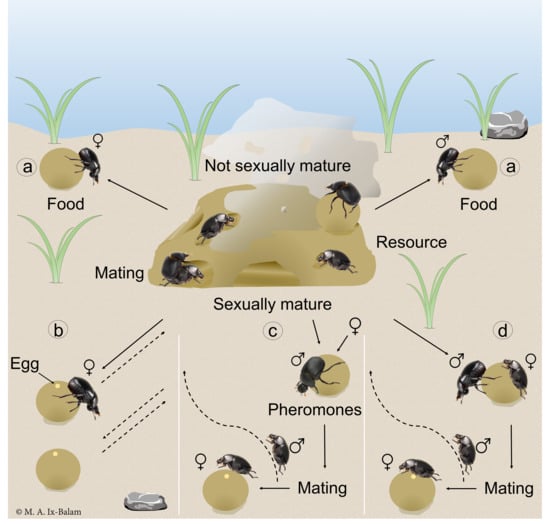The Rolling of Food by Dung Beetles Affects the Oviposition of Competing Flies
Abstract
Share and Cite
Ix-Balam, M.A.; A. Oliveira, M.G.; Louzada, J.; McNeil, J.N.; Lima, E. The Rolling of Food by Dung Beetles Affects the Oviposition of Competing Flies. Insects 2018, 9, 92. https://doi.org/10.3390/insects9030092
Ix-Balam MA, A. Oliveira MG, Louzada J, McNeil JN, Lima E. The Rolling of Food by Dung Beetles Affects the Oviposition of Competing Flies. Insects. 2018; 9(3):92. https://doi.org/10.3390/insects9030092
Chicago/Turabian StyleIx-Balam, Manuel A., Maria G. A. Oliveira, Júlio Louzada, Jeremy N. McNeil, and Eraldo Lima. 2018. "The Rolling of Food by Dung Beetles Affects the Oviposition of Competing Flies" Insects 9, no. 3: 92. https://doi.org/10.3390/insects9030092
APA StyleIx-Balam, M. A., A. Oliveira, M. G., Louzada, J., McNeil, J. N., & Lima, E. (2018). The Rolling of Food by Dung Beetles Affects the Oviposition of Competing Flies. Insects, 9(3), 92. https://doi.org/10.3390/insects9030092





